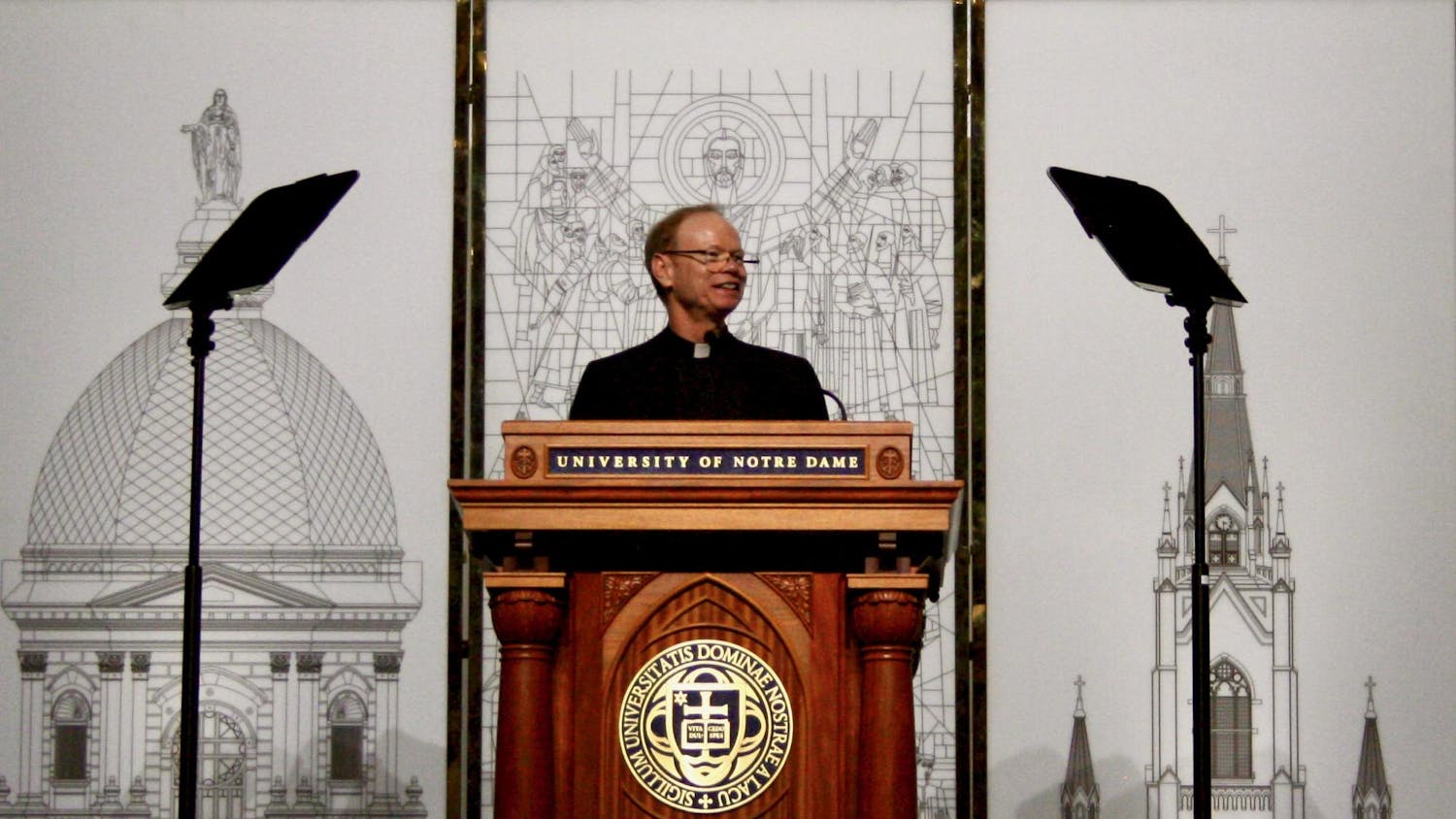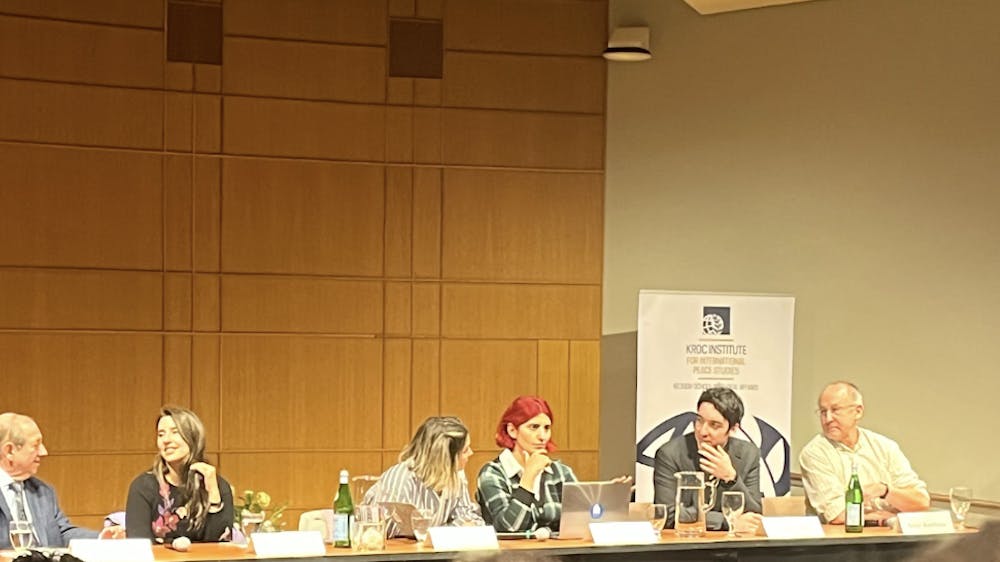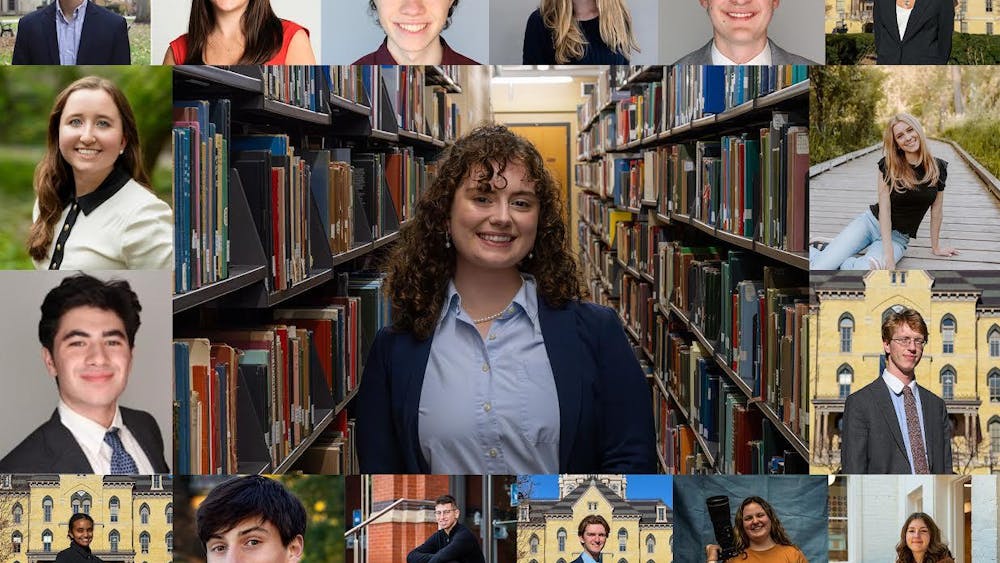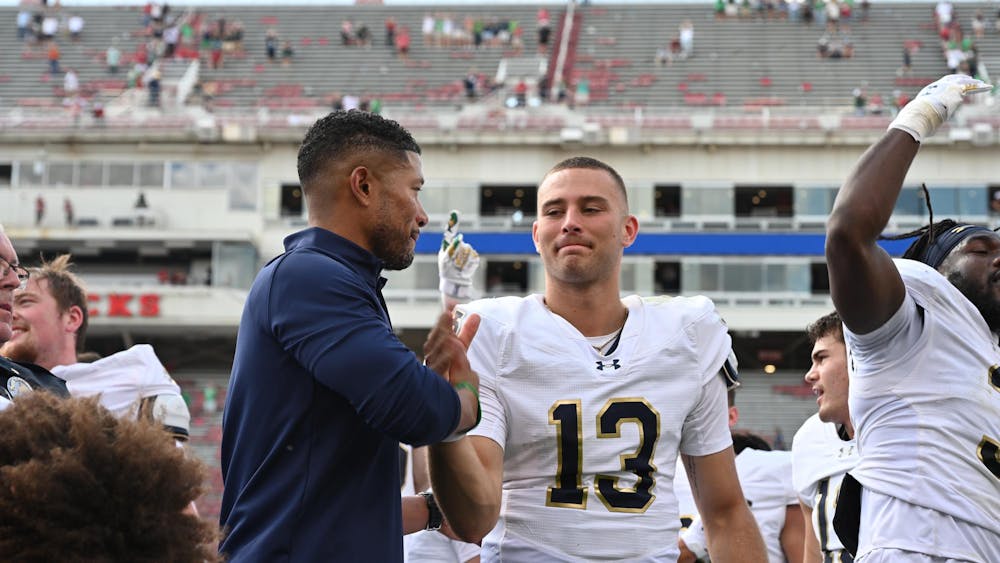Meghan Sullivan, philosophy professor and director of the Notre Dame Institute for Advanced Study, elaborated on succeeding at Notre Dame “without losing your soul,” in a lecture Tuesday night.
Sullivan directs the God and the Good Life program. Her lecture, titled “How to succeed at Notre Dame without losing your soul,” was the sixth annual lecture for the Sorin Scholars program and was hosted by the Flatley Center for Undergraduate Scholarly Engagement (CUSE).
Sullivan spoke about her personal life, focusing on her relationship with her brother and his time as an undergraduate student. She highlighted a particular conversation they shared while on a trip to Yosemite National Park, as she was just starting to teach courses within God and the Good Life.
Sullivan offered the students in the audience a question to ponder before providing four pieces of advice.
“How do you care for your soul when you’re at an elite college like Brown or Notre Dame, or when you’re just 18, 19, 20, 21 years old and trying to do really hard work in getting launched in life,” she said.
Her first lesson was “when in doubt, philosophy can help you out.”
“If you don’t know the answer to something, I have only discovered that philosophy helps,” Sullivan said. “Philosophy, at least for the last 2,000 years of it, has been in the business of trying to help people figure out how to be happy. Sometimes the philosopher’s advice is really hard to understand, but it gives me comfort to realize that people have been dealing with a lot of these really big problems for a long time.”
Sullivan’s second lesson spoke to the difficulty of life between the ages of 18 to 22.
“There is lots of stuff that you need to figure out that other people have figured out already but you have not, and it’s risky,” she said.
She encouraged students to ask themselves a series of questions when seeking life advice.
“First, you should think about the kinds of problems you are really facing,” Sullivan said. “Second, you should ask yourself whether that advice is helping you with the concrete problem you’re dealing with now. Three, you should ask yourself if the person giving you advice has any capacity to understand your problem.”
She said if the answer to these two questions is “no,” then Aristotle says we should “dump it,” as advice should help us in the problems we actually face.
Third, Sullivan said, “you were built to want (the right) things.”
“Aristotle has this really great line in the opening of the Nicomachean Ethics where he says, ‘Here is the big problem that we all face in our lives, and especially people that are starting off in life: what are we going to aim at,’” she said, paraphrasing the philosopher.
Her fourth lesson concerned the intertwined nature of thinking and loving.
“If you take the Greek philosophers seriously, and if you think really seriously about what it means to try to find the desires that aren’t going to fail you, you start to realize that thinking and loving are really closely interconnected,” Sullivan said. “That’s something you can use to your advantage when you’re in college.”
People actually have a lot of time to think in college, Sullivan said.
“Thinking isn’t an emotionless, boring activity,” she said.
Sullivan then led students in two activities, asking them to think about a 15-second moment of happiness from their lives. She encouraged students to repeat this exercise to help them “not lose their souls” while at Notre Dame.
She then invited students to turn to the person they were sitting next to, introduce themselves and tell their neighbors they were glad to meet them.
She encouraged students to make a wishlist for their lives and then reorder the items.
“Think about what you really want,” Sullivan said.
Sullivan’s talk was followed by a short statement from three current Sorin Scholars who spoke to their own undergraduate experiences and achievements.
Philosophy professor provides students with advice on “not losing your soul” at Notre Dame
Philosophy professor Meghan Sullivan advised students struggling to take care of themselves to ask the right questions, seek philosophical answers and pursue the parts of life they truly desire.









